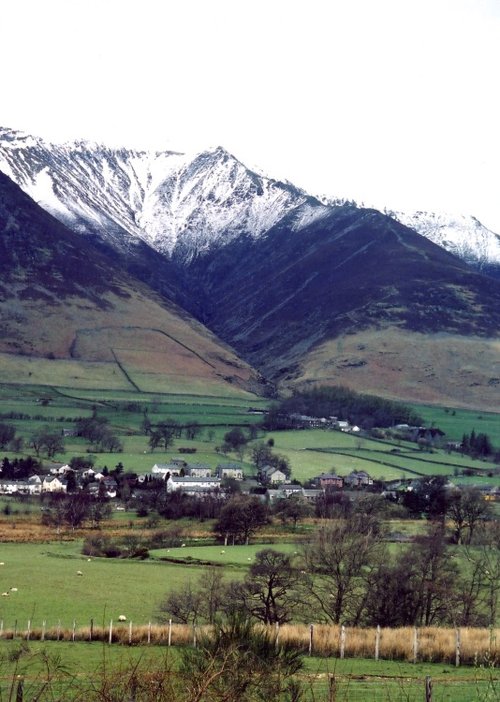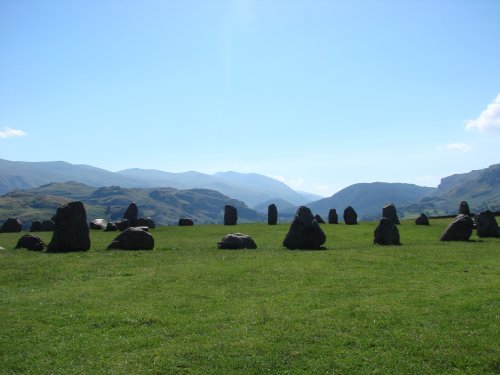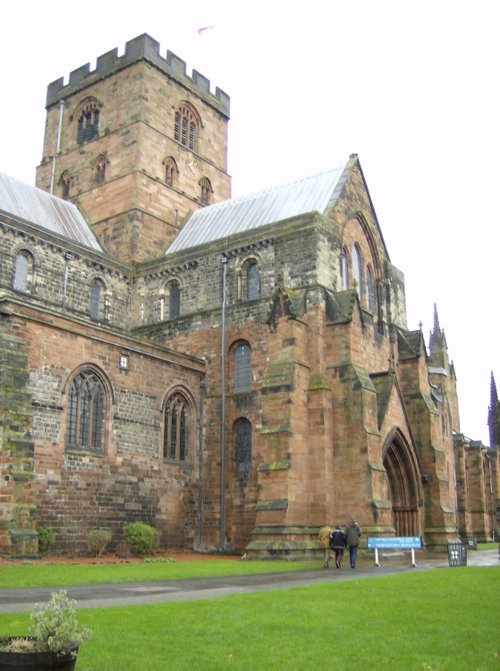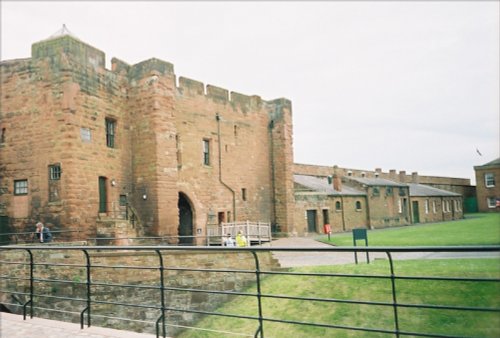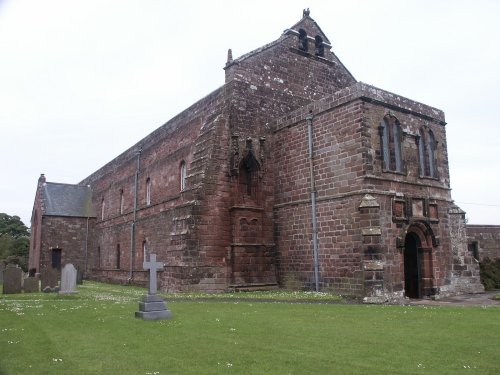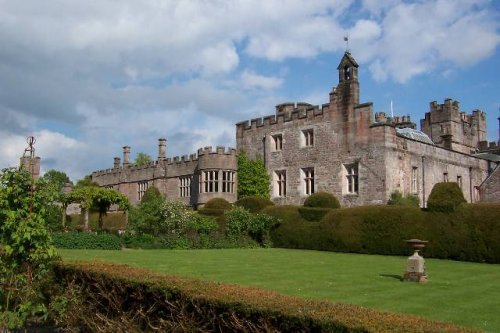Pictures of Caldbeck
About Caldbeck
An old brewery stands beside the Caldbeck - a tribute to the cold clear waters which gave the village its name. Caldbeck, which means 'cold stream' in Old Norse, grew up where two hill streams meet in a valley below the Cumbrian fells.
Caldbeck, was the home of John Peel, a local man who was born here in 1776. Peel, met and married a local girl, Mary White and they produced thirteen children.
More than any other past-time, Peel loved Hunting and he often followed the hounds in traditional Lakeland style, on foot. He is immortalised by the song D'ye ken John Peel. The words to this famous song were written by his friend, John Woodcock Graves. John worked in a mill making the grey cloth mentioned in one of the verses and, the song was set to music by William Metcalfe, the Carlisle Cathedral Organist.
Commemorating Peel's death in 1854 is an elaborate headstone carved with hunting horns. This stands close to the door of Caldbecks Church. A sandstone shelter close to the churchyard gate is dedicated to Peel and Graves but there is no mention of William Metcalfe.
Caldbeck is a captivating village, there are fine views towards a series of Lakeland peaks. The local Church of St. Kentigern dates from the 12th-century but was latterly restored in 1932. There is a gracious 18th-century Rectory with Gothic windows and in the centre of the village there are some well preserved 18th-century cottages. This pretty area is known as Midtown. A picturesque footbridge spans the Caldbeck and leads to Friar Row, a group of cottages with Cumberland slate roofs. These stone cottages were built around 1800.
Caldbeck is surrounded by the Majestic scenery of Lakeland, tarry a while and in a flight of fancy, you will swear that you can see John Peel in his gay hunting jacket, striding across the fells on his way to join up with his beloved hunt.
Nearby, the old town of Penrith and the City of Carlisle provide the visitor with endless shopping facilities, museums and Art galleries. Many inns and restaurants an be found near Caldbeck and in the beautiful surrounding countryside.
John Peel.
D'ye ken John Peel with his coat so gay,
D'ye ken John Peel at the break of the day,
D'ye ken John Peel when he's far, far away,
With his hounds and his horn in the morning?
Chorus.
For the sound of his horn brought me from my bed,
And the cry of his hounds which he oft-times led;
Peel's view halloo would awaken the dead,
Or the fox from his lair in the morning.
Yes, I ken John Peel and Ruby too!
Ranter and Ringwood, Bellman and True,
From a find to a check, from a check to a view,
From a view to a death in the morning.
Then here's to John Peel from my heart and soul,
Let's drink to his health, let's finish the bowl,
We'll follow John Peel thro' fair and thro' foul,
If we want a good hunt in the morning.
D'ye ken John Peel with his coat so gay?
He lived at Troutbeck once on a day;
Now he has gone far, far, far away;
We shall ne'er hear his voice in the morning.
Written by John Woodstock Graves for his friend, the Cumbrian huntsman, John Peel (1776 - 1854).
To quote from John Peel: The Man and the Song, John Woodcock Graves said the following in his account written in 1863:
Nearly forty years have now wasted away since John Peel and I sat in a snug parlour at Caldbeck, hunting over again many a good run, when a flaxen-haired daughter of mine came in saying "Father, what do they say to what Granny sings?" Granny was singing to sleep my eldest son with a very old rant called "Bonnie (or Cannie) Annie." The pen and ink for hunting appointments being on the table the idea of writing a song to this old air forced itself on me, and thus was produced, impromptu "D'ye ken John Peel with his coat so gray." Immediately after I sang it to poor Peel, and I well remember saying to him in a joking style, "By Jove, Peel, you'll he sung when we're both run to earth."
John Peel died from a horse fall in 1854 with 3000 people attending his funeral.
